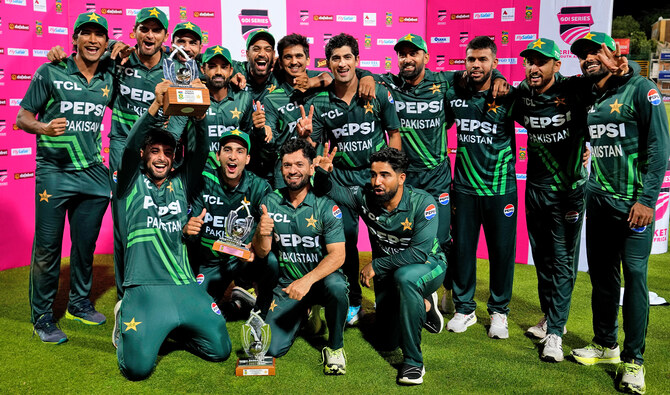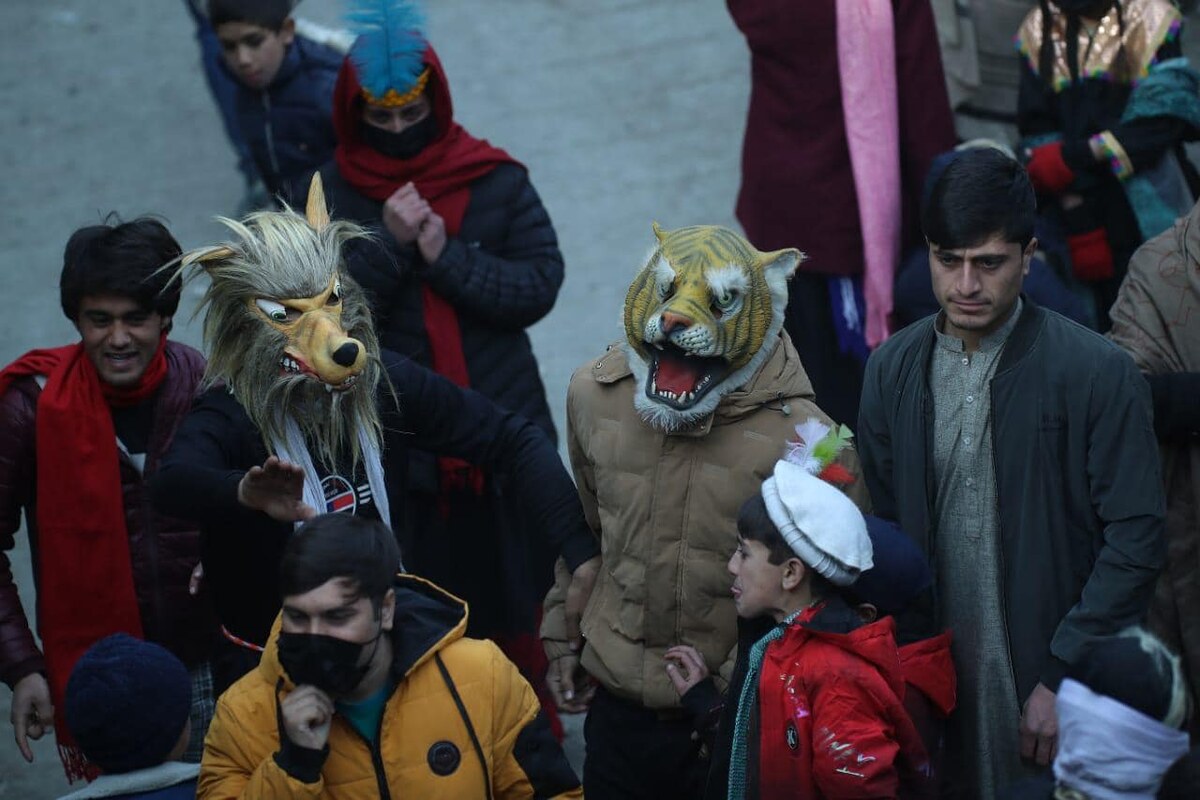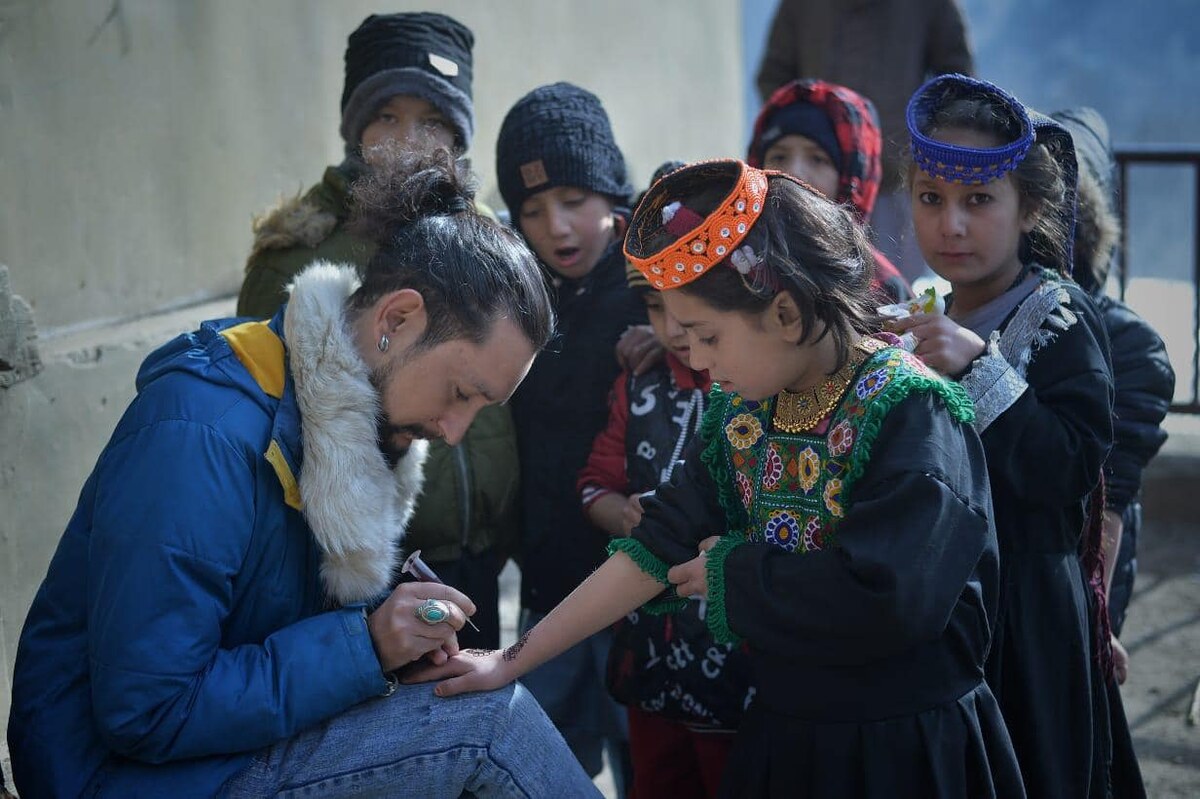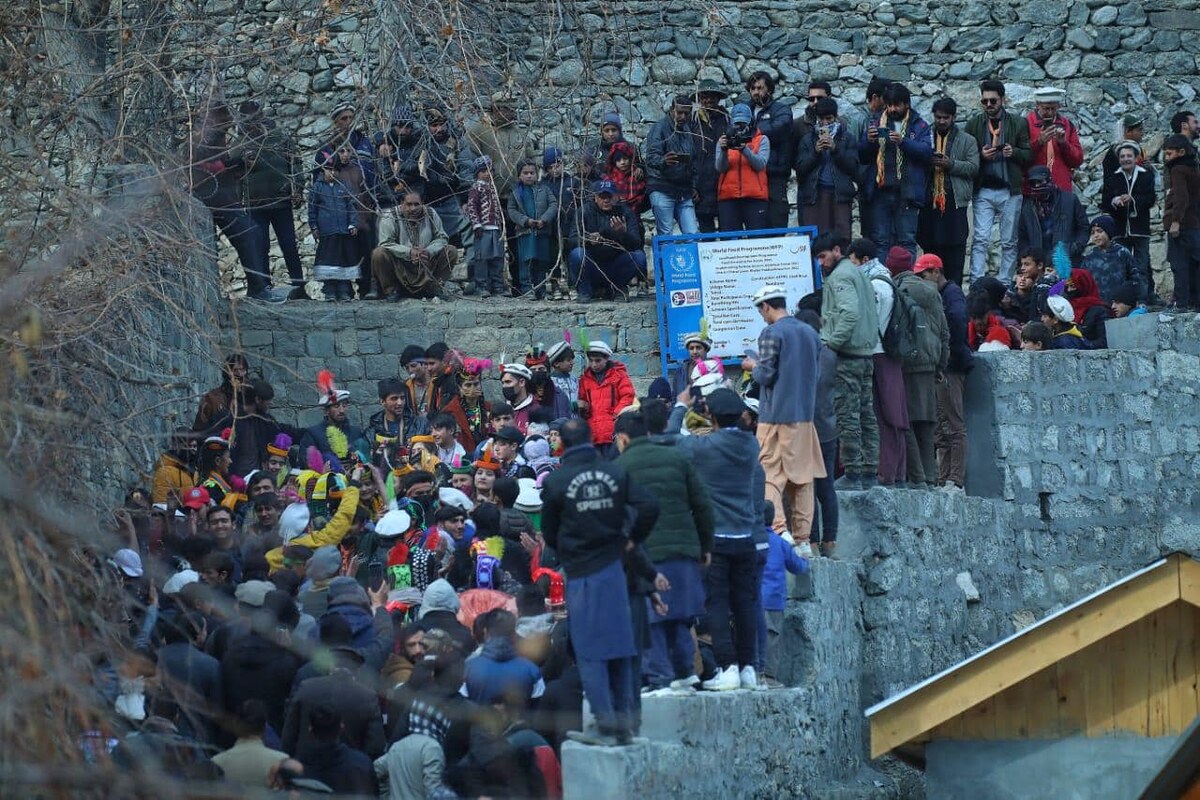KARACHI: Telemedicine has witnessed a surge in Pakistan since the outbreak of the coronavirus pandemic, health experts have said, with some companies reporting up to 900 percent growth over the last year.
Doctors and disease specialists around the world have recommended alternatives to face-to-face doctor or clinic visits since the COVID-19 outbreak to help limit exposure to the virus and free up resources for those who may really need them. Remote diagnoses through telehealth services has grown around the world, with 154% growth in the United States, according to the US Centers for Disease Control and Prevention (CDC).
Over the past decade, telehealth, a broader term used to define all medical services and health education delivered digitally, has grown steadily as an industry. According to Global Market Insights, the market size in 2019 was around $45 billion and is projected to grow to more than $175 billion by 2026.
“We [Pakistan] have witnessed 800-900% growth in telemedicine after the pandemic outbreak,” Dr. Anam Daayem, a digital health care expert and COO of the company Ehad Virtual Health, told Arab News. “Globally the percentage is not that much because they were already using telemedicine.”
Government officials could not be reached to confirm Daayem’s figures.
Riding a wave of increasing investor interest in telehealth, a local startup, Sehat Kahani, announced on Monday that it had secured $1 million in a pre-Series A round of funding to expand its network in Pakistan.
“We have experienced massive 425 percent growth in the last 12 months only,” Dr. Sara Saeed Khurram, co-founder and chief executive officer of Sehat Kahani, said at an event to mark the closing of the funding round.
“We have empowered 3.1 million people in Pakistan with health-tech and consultations,” Khurram told Arab News. “A lot of doctors from the Middle East and North Africa have also joined our network.”
Khurram founded Sehat Kahani with Dr. Iffat Zafar Aga, making it the first Pakistani women-led enterprise to raise funding in a pre-Series A round.
Telemedicine was first introduced in Pakistan in 2003 under the Pakistan-US Science and Technology Cooperation Program that helped train 45 doctors and nurses from various institutions within a period of six months.
But the concept did not catch on in subsequent years.
“Pakistan is already 15 to 20 years behind in the digital health field when we compare it with the rest of the world,” Daayem said. “However, the trend gained significant pace during the COVID-19 pandemic when people reduced physical exposure and turned to online facilities. Many of them realized that telemedicine was the best option available to them.”
Abdullah Butt, an expert in the field, said the telemedicine sector had previously suffered due to a lack of market penetration, which had improved due to the coronavirus.
“After the emergence of COVID-19, we experienced unprecedented growth, but we still have a long way to tap the true market potential,” he said. “Doctors and patients are still reluctant to use the digital health space due to fear of financial documentation and lack of technological awareness.”
Ahmed Ali Siddiqui, senior executive vice president of Meezan Bank, told Arab News there was “huge potential” for investment in telehealth.
“The telemedicine trend is gaining momentum since the outbreak of the coronavirus pandemic and its outreach is gradually expanding,” he said.
Senior Pakistani government officials said Pakistan had provided an enabling environment for the growth of telemedicine.
“The basic requirement for telemedicine and related e-businesses is connectivity,” Syed Aminul Haque, federal minister of information and communication technology, said while addressing the Sehat Kahani event on Monday. “For enhanced connectivity, the ministry is seriously pursuing a vision for digital Pakistan.”
Officials said the State Bank was also trying to provide financial support to telehealth ventures.
“The central bank has made cheap loans available to startups and those expanding their businesses,” Dr. Reza Baqir, State Bank governor said. “Now our new regulations enable startups to conveniently remit disinvestment proceed through designated banks without any regulatory approval.”
Telehealth companies grew by 900% in Pakistan during pandemic — experts
https://arab.news/zq2we
Telehealth companies grew by 900% in Pakistan during pandemic — experts

- Pakistan’s first women-led telemedicine firm raises $1 million in pre-Series A round
- Government says creating enabling environment for e-businesses by providing connectivity, funds
Pakistan stock market registers second highest single-day gain on ‘easing political noise’

- The benchmark KSE-100 index surged by 4,411 points, or 4.3 percent, to close at 113,924 points on Monday, according to stock traders
- The development came as Pakistan’s government holds talks with ex-PM Imran Khan’s PTI opposition party to address political polarization
ISLAMABAD: The Pakistan Stock Exchange (PSX) began the week on a strong note and gained more than 4,000 points on Monday, stock analysts said, attributing the rally to “easing political noise” and upbeat economic indicators.
The benchmark KSE-100 index surged by 4,411 points, or 4.3 percent, to close at 113,924 points on Monday, according to stock traders. The market saw the trading of 424,809,788 shares and registered the second highest single-day gain from Friday’s close of 109,513 points.
Stock analysts said upbeat economic indicators on surging exports, remittances and foreign exchange reserves as well as the government’s talks with the opposition Pakistani Tehreek-e-Insaf (PTI) party played a catalyst role in the rally.
“Stocks’ bullish record led by scrips across the board as investor weigh falling lending rates after fall in government bond yield and easing political noise,” Ahsan Mehanti, chief executive officer of Arif Habib Commodities, told Arab News.
Mehanti’s comments came hours after the Pakistani government held a first round of talks with jailed former prime minister Imran Khan’s PTI party to address political polarization in the country.
Pakistan has remained gripped by political unrest and uncertainty since Khan’s ouster from power through a parliamentary no-confidence vote in April 2022, which has also exacerbated Pakistan’s economic hardships.
However, Pakistan’s economic indicators have improved and the stock market has surged significantly, reaching a historic high of 117,039 points this month. Though the market shed around 9,000 points last week, but it recovered on Friday by registering a sharp increase of more than 3,000 points.
Pakistan’s central bank this month cut its key interest rate by 200 basis points to 13 percent, marking the fifth straight reduction since June. The country’s annual consumer inflation also slowed to 4.9 percent in November, lower than the government’s forecast and the lowest in nearly six years. This was down from 38 percent last year.
Data released by the Pakistan Bureau of Statistics also supports positive investor sentiment as the trade deficit narrowed by 7.39 percent during the first five months (July-November) of the current fiscal year, standing at $8.651 billion, compared to $9.341 billion during the same period last year.
Exports rose by 12.57 percent to hit $13.69 billion, while imports increased by 3.90 percent to $22.342 billion during this period. November’s trade deficit narrowed even further, dropping by 18.60 percent year-on-year to $1.589 billion compared to $1.952 billion in November 2023.
Pakistan recorded an increase of 29.1 percent year on year in workers remittances, which amounted to $2.9 billion in November, according to the central bank data. The inflows rose by 33.6 percent to $14.8 billion from July till November, compared to $11.1 billion received during the same period last year.
PM hails Pakistan for ‘unstoppable, unbeatable’ performance in South Africa ODI series

- Green Shirts thrashed South Africa 3-0 after losing Twenty20 series 2-0
- Pakistan will now play three Tests against South Africa later this month
ISLAMABAD: Prime Minister Shehbaz Sharif on Monday praised the Pakistan cricket team for winning a three-match One Day International (ODI) series against South Africa, describing their performance as “unstoppable and unbeatable.”
The Green Shirts completed a series clean sweep over South Africa in the third ODI at the Wanderers Stadium on Sunday, with rising star Saim Ayub smashing his second century of the series and his third from five innings.
The left-handed opening batsman made a sparkling 101 off 94 balls in a Pakistan total of 308 for nine. Heinrich Klaasen thrashed 81 off 43 balls for South Africa, but the hosts were beaten by 36 runs chasing an adjusted target of 308 because of rain.
“Unstoppable and unbeatable!” Sharif remarked in a post on X. “Congratulations to Team Pakistan on an outstanding 3-0 ODI series victory against South Africa.”
The prime minister also praised the Pakistan Cricket Board chairman for the team’s performance.
“Well done, boys! Your determination, skill, and teamwork under the leadership of the PCB Chairman Syed Mohsin Raza Naqvi have made the entire nation proud,” he said.
“Keep raising the green flag high!“
South Africa won the T20I series 2-0 after the third match was washed out on Dec. 14. The ODI series win comes ahead of the upcoming International Cricket Council (ICC) Champions Trophy, which Pakistan will hosting in February and March 2025.
Pakistan will also play three Tests against South Africa later this month.
Government, Imran Khan party hold first round of formal talks, next session on Jan. 2

- Negotiations began after Khan threatened civil disobedience, seeking the release of political prisoners
- There are growing concerns among PTI that Khan may face military trial for 2023 riots involving followers
ISLAMABAD: The government and the opposition Pakistan Tehreek-e-Insaf (PTI) party of former Prime Minister Imran Khan held the first round of formal negotiations on Monday in a bid to ease prolonged political tensions, with the PTI asked to present its demands in writing at the next session on Jan. 2.
Khan’s ouster in a parliamentary vote of no-confidence in 2022 has plunged the country into long-term political crisis, particularly since the PTI founder was jailed in August last year on corruption and other charges and remains behind bars. His party and supporters regularly hold protests calling for his release, with many of the demonstrations turning violent, including one last month in which the government says four troops were killed and the PTI says 12 of its supporters died.
Khan has previously rejected talks with the government, saying his party would only talk to the ‘real powerbrokers’ in Pakistan, the all-powerful army, but earlier this month he set up a negotiating committee of top party leaders to open dialogue with the government for the fulfilment of two demands: the release of political prisoners and the establishment of judicial commissions to investigate protests on May 9 last year and Nov. 26 this year, which the government says involved his party supporters, accusing them of attacking military installations and government buildings.
The talks open as Khan has threatened a civil dissidence movement and amid growing concerns he may face trial by a military court for allegedly inciting attacks on sensitive security installations during the May 9 protests.
“Since some members of the opposition could not join the talks today, we have decided to hold the next meeting on Jan. 2,” National Assembly Speaker Ayaz Sadiq, who was chairing the meeting, said at the end of the first round of negotiations. “The opposition will also present a charter of demands in the meeting.”

He said the talks were held in a “cordial” environment, calling them vital to end “political polarization” in the country.
Senator Irfan Siddiqui, also from the government side, said both sides agreed parliament was the appropriate forum to resolve political differences and emphasized that the negotiation process should continue.

Speaking to the media after the talks, Khan’s close aide, Asad Qaiser, said the PTI team had asked the government to release all political prisoners, including the former prime minister, and form a judicial commission chaired by senior Supreme Court judges to probe the May 9 and Nov. 26 protests.
“We should be allowed to hold a meeting with Imran Khan,” Qaiser said. “He is our leader. We will move forward with his instructions.”
He said the government had said it would arrange the meeting but it was not clear when.
The negotiations came days after Pakistan’s military announced prison sentences for 25 people involved in the May 9 protests, which PTI has demanded be investigated. The PTI has also repeatedly said it fears the government and military will try Khan in army courts for the May 9 violence. He is already being tried for the violence in a civilian court.
Ancient winter festival in Pakistan’s Chitral concludes with rituals, traditional dance

- Chawmos festival is celebrated in December by the Kalash people, who are numbered around 4,000
- Festival marks welcoming of new year, celebrated with dance, animal sacrifice, singing and feasting
PESHAWAR: A religious winter festival celebrated by the Kalash people in the northwestern Pakistani district of Chitral has concluded after featuring rituals, traditional dance and other festivities for two weeks, provincial tourism authority said on Monday.
The Kalash are a group of about 4,000 people, possibly Pakistan’s smallest minority, who live in the mountains of the Hindu Kush, where they practice an ancient polytheistic faith.
They come together each year in December to celebrate the two-week Chawmos festival after the community finishes fieldwork and stores cheese, fruit, vegetables and grains for the year.
The festival features various rituals, animal sacrifice, dance, songs and feasting, preserving the Kalash culture and attracting a number of tourists to Pakistan’s Khyber Pakhtunkhwa.
“The religious Chawmos festival of the ancient Kalash Valley has concluded,” Mohammad Saad, a spokesperson for the KP Tourism Authority, said in a statement.
“The festival continued from Dec. 8 in the three valleys of Bumburet, Birir and Rumbur.”

The Kalash community’s religion incorporates animiztic traditions of worshipping nature as well as a pantheon of gods, and its people live mainly in the three Kalash valleys of Bumburet, Birir and Rumbur.
The Chawmos festival is celebrated to welcome the new year, with the Kalash people indulging in religious practices and distributing vegetables and fruit among each other, according to the official.

The festival was attended by a large number of domestic and foreign tourists who were fully facilitated by the provincial tourism authority.

Pakistan defense minister blames judiciary for delayed verdicts in May 9 cases

- National problems require decisions at the earliest, says Khawaja Asif while talking to media in London
- Protests erupted in several Pakistani cities on May 9, 2023, over ex-PM Imran Khan’s arrest in a graft case
ISLAMABAD: Pakistan’s Defense Minister Khawaja Asif on Sunday blamed the judiciary for delaying verdicts in the May 9, 2023, cases, which have so far led to the conviction of 25 supporters of former Prime Minister Imran Khan’s Pakistan Tehreek-e-Insaf (PTI) party for attacking government buildings and military properties last year.
On Dec. 21, the Pakistan Army sentenced 25 people for participating in the violent protests that erupted in several Pakistani cities following Khan’s brief detention on corruption charges, resulting in damage to major military facilities and martyrs’ monuments in the country.
However, several suspects are also facing legal charges in anti-terrorism courts, with the military hoping for early verdicts in their cases, according to a statement announcing the sentencing of the 25 individuals, which described the rioting as “politically provoked violence.”
The PTI has denied any involvement in the violence, describing the May 9 incident as a “false flag” operation aimed at crushing the party.
“The judiciary created the biggest hurdle in this [the conviction of May 9 suspects] while this thing was allowed to linger for one and a half years,” Asif said while speaking to the media in London, the city he is currently visiting.
Describing the May 9 protests as a national problem, he said all the cases related to it required verdicts at the earliest.
The conviction of the 25 individuals followed a ruling by a seven-member Constitutional Bench of the Supreme Court of Pakistan on Dec. 13, allowing military courts to share their verdicts. Prior to that, the court had unanimously declared last year that prosecuting civilians in military courts violated the Constitution.
Khan’s PTI party rejected the military’s announcement, with opposition leader Omar Ayub Khan saying they were “against the principles of justice.”
The sentencing of the 25 individuals also raises concerns about Khan, who faces charges of inciting attacks against the armed forces and may potentially be tried in a military court.
Earlier, Asif had regretted the delay in announcing the verdicts, saying that it “raised the morale of the accused and their facilitators.”
“Right now, only the workers, who were used [to generate violence], have been punished under the law,” he had said. “This will not end until the ones, who planned this terrible day, are not brought before the law.”










